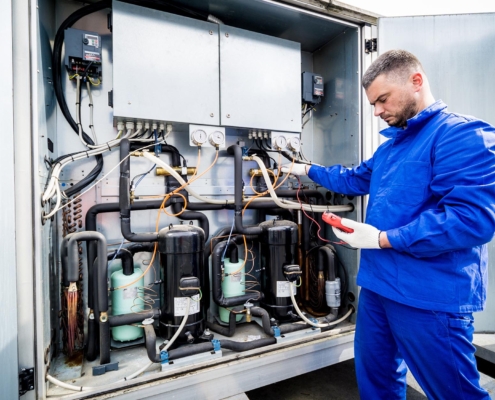 https://sammechanical.com/wp-content/uploads/2025/02/Worker-inspecting-commercial-HVAC-unit-on-roof.jpg
1250
2000
AbstraktMarketing
/wp-content/uploads/2024/01/sam-logo-crete-300x154.png
AbstraktMarketing2025-02-25 14:34:152025-02-25 14:34:23The Top Commercial HVAC Solutions for New Hampshire Businesses
https://sammechanical.com/wp-content/uploads/2025/02/Worker-inspecting-commercial-HVAC-unit-on-roof.jpg
1250
2000
AbstraktMarketing
/wp-content/uploads/2024/01/sam-logo-crete-300x154.png
AbstraktMarketing2025-02-25 14:34:152025-02-25 14:34:23The Top Commercial HVAC Solutions for New Hampshire BusinessesThe Importance of Indoor Air Quality Management
All homeowners desire to provide their families with a safe and comfortable environment. Air quality within our homes is a key aspect that significantly influences our health and well-being. It’s something that’s often overlooked, but in this article, we delve deep into how we can improve our Indoor Air Quality (IAQ) using efficient and well-maintained Heating, Ventilation, and Air Conditioning(HVAC) systems. We would also discuss the relevance of our home environment in preserving good IAQ and practical strategies for confronting common indoor air quality issues. The role of investing in quality HVAC systems, regular maintenance, and home improvements in achieving this is also highlighted. It’s time to give your home’s IAQ a breath of fresh air!
How Does Poor Indoor Air Quality Management Affect Your Health?
Indoor air quality directly impacts human health. Poor indoor air quality has been linked to a variety of health issues. Short-term effects include irritation of the eyes, nose, and throat, headaches, dizziness, and fatigue, which can be mistaken for other illnesses like colds or allergies. Long-term exposure to poor indoor air quality can lead to more serious health conditions such as respiratory diseases, heart disease, and even cancer. Especially vulnerable are children, the elderly, and those with pre-existing respiratory and cardiovascular illnesses.
Specific indoor air pollutants, such as radon decay products and environmental tobacco smoke, have been identified as carcinogens. In addition, indoor environments with high humidity levels can promote the growth of mold and mildew, leading to increased allergy and asthma symptoms among inhabitants. Addressing indoor air quality problems is not just about comfort—it’s critical to safeguarding overall health.
Practical HVAC Tips for Better Indoor Air Quality
Improving and maintaining indoor air quality involves a comprehensive approach, including regular HVAC maintenance. Regular inspections and cleanings can identify and mitigate potential issues before they escalate into health hazards. Ensure that your system is properly sized to manage your space’s air supply and demand efficiently, avoiding problems of over- or under-ventilation.
Regular HVAC System Maintenance
Regular maintenance of your HVAC system is imperative for its efficient operation and for maintaining indoor air quality. This includes annual check-ups by a professional to ensure that the system is running efficiently and regular cleaning and inspection of the air ducts to prevent dust, mold, and other pollutants from being distributed throughout the home.
Between professional check-ups, homeowners should regularly inspect and clean the vents and air filters to keep the airflow unobstructed and to prevent the recirculation of dust and other pollutants.
Importance of Changing HVAC Filters
Regularly changing the HVAC filters is one of the simplest yet most effective measures to improve indoor air quality. These filters trap pollutants and prevent them from recirculating through the air. Over time, filters can become clogged with dust, pet dander, and other allergens, reducing their effectiveness. The Consumer Product Safety Commission recommends changing filters every three months or more frequently if you have pets or smokers in the house.
Utilizing HVAC Accessories to Improve Air Quality
Additional HVAC accessories, such as UV lights, air cleaners, and humidifiers, can enhance indoor air quality. UV lights can help reduce airborne microorganisms, air cleaners can capture a greater number of smaller particles than traditional filters, and humidifiers can help maintain proper indoor moisture levels, providing a more comfortable and healthier home environment.
SAM Mechanical offers HVAC maintenance solutions that enhance indoor air quality managementby ensuring components are working properly. Learn more today.
Responding to Common Indoor Air Quality Issues with HVAC Solutions
Facing indoor air quality challenges requires targeted solutions. When properly utilized, HVAC systems offer effective means to address common indoor air quality issues such as humidity, allergens, and indoor pollution.
Dealing With Humidity Issues
Excessive humidity can contribute to mold growth and increase airborne allergens. Utilizing dehumidifiers in conjunction with your HVAC system or choosing HVAC systems with built-in humidity control can help maintain optimal indoor humidity levels, thereby improving indoor air quality.
Addressing Pollen and Other Allergens
During allergy season, pollen can significantly impact indoor air quality. High-efficiency air filters and regular maintenance of HVAC systems can reduce the amount of pollen and other allergens that enter and circulate within the home. Sealing leaks in windows and doors can also prevent outdoor allergens from penetrating indoor spaces.
Fighting Indoor Air Pollution With Your HVAC System
A well-maintained HVAC system can effectively mitigate Indoor air pollution from volatile organic compounds (VOCs), gas space heaters, and other sources. Ensuring adequate ventilation and employing air-cleaning accessories can help reduce the concentration of these pollutants indoors.
Long-Term Strategies for a Healthier Indoor Environment
To ensure a healthy indoor environment in the long term, investing in efficient and high-quality HVAC systems and making home improvements geared towards better ventilation and air quality is essential.
Efficient HVAC System Upgrades for Improved Air Quality
Investing in an HVAC system upgrade can significantly improve indoor air quality. Modern systems are more efficient, have better filtration capabilities, and are designed for improved indoor air circulation. Opting for an HVAC system with advanced features such as smart sensors and programmable settings can also enhance the system’s effectiveness in managing indoor air quality.
Investing in High-Quality HVAC Systems
Choosing properly sized, high-quality HVAC systems is crucial for long-term indoor air quality management. Not only do these systems provide more efficient heating and cooling, but they also come with enhanced filtration and ventilation capabilities. Consulting with HVAC professionals can help determine the best system for your needs.
Embrace Home Improvements for Better Ventilation and Air Quality
Beyond HVAC solutions, home improvements such as increasing natural ventilation, using vented space heaters, and adopting indoor plants can significantly improve indoor air quality. These improvements can reduce reliance on mechanical systems and promote a healthier indoor environment.
SAM Mechanical’s Indoor Air Quality Management
Partnering with a reputable residential HVAC provider is key for ensuring your home has high indoor air quality. SAM Mechanical offers expert installation and maintenance services that verify your equipment is installed properly and working efficiently.
Contact us today to learn more about our SAM Mechanical services.
Share This Post
More Like This
 https://sammechanical.com/wp-content/uploads/2025/02/Worker-inspecting-commercial-HVAC-unit-on-roof.jpg
1250
2000
AbstraktMarketing
/wp-content/uploads/2024/01/sam-logo-crete-300x154.png
AbstraktMarketing2025-02-25 14:34:152025-02-25 14:34:23The Top Commercial HVAC Solutions for New Hampshire Businesses
https://sammechanical.com/wp-content/uploads/2025/02/Worker-inspecting-commercial-HVAC-unit-on-roof.jpg
1250
2000
AbstraktMarketing
/wp-content/uploads/2024/01/sam-logo-crete-300x154.png
AbstraktMarketing2025-02-25 14:34:152025-02-25 14:34:23The Top Commercial HVAC Solutions for New Hampshire Businesses https://sammechanical.com/wp-content/uploads/2024/12/Worker-looking-over-plans-for-HVAC-upgrade.jpg
1250
2000
AbstraktMarketing
/wp-content/uploads/2024/01/sam-logo-crete-300x154.png
AbstraktMarketing2024-12-10 14:41:512025-05-21 15:50:03The Financial Benefits of a Commercial HVAC Upgrade
https://sammechanical.com/wp-content/uploads/2024/12/Worker-looking-over-plans-for-HVAC-upgrade.jpg
1250
2000
AbstraktMarketing
/wp-content/uploads/2024/01/sam-logo-crete-300x154.png
AbstraktMarketing2024-12-10 14:41:512025-05-21 15:50:03The Financial Benefits of a Commercial HVAC Upgrade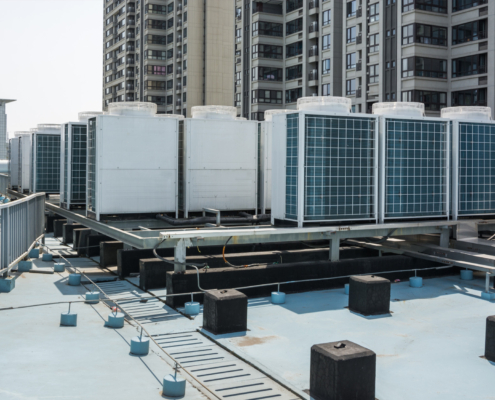 https://sammechanical.com/wp-content/uploads/2024/11/Uncovering-the-Benefits-of-Commercial-HVAC-Retrofits.jpg
1250
2000
AbstraktMarketing
/wp-content/uploads/2024/01/sam-logo-crete-300x154.png
AbstraktMarketing2024-11-25 14:44:182025-01-07 15:57:30Uncovering the Benefits of Commercial HVAC Retrofits
https://sammechanical.com/wp-content/uploads/2024/11/Uncovering-the-Benefits-of-Commercial-HVAC-Retrofits.jpg
1250
2000
AbstraktMarketing
/wp-content/uploads/2024/01/sam-logo-crete-300x154.png
AbstraktMarketing2024-11-25 14:44:182025-01-07 15:57:30Uncovering the Benefits of Commercial HVAC Retrofits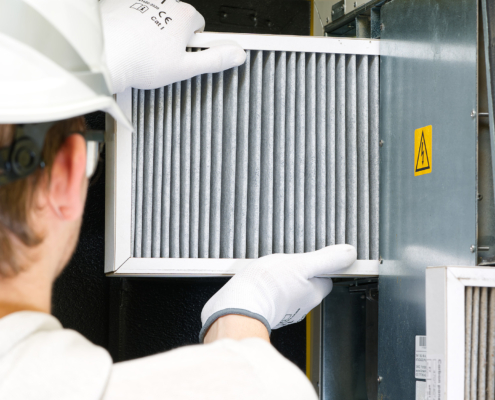
The Importance of Regular HVAC Filter Changes: What Everyone Should Know
Commercial HVAC, Residential HVAC https://sammechanical.com/wp-content/uploads/2024/11/Uncovering-the-Innovative-Role-of-Commercial-Smart-Thermostats-1.jpg
1250
2000
AbstraktMarketing
/wp-content/uploads/2024/01/sam-logo-crete-300x154.png
AbstraktMarketing2024-11-21 10:12:142025-04-10 09:10:42Uncovering the Innovative Role of Commercial Smart Thermostats
https://sammechanical.com/wp-content/uploads/2024/11/Uncovering-the-Innovative-Role-of-Commercial-Smart-Thermostats-1.jpg
1250
2000
AbstraktMarketing
/wp-content/uploads/2024/01/sam-logo-crete-300x154.png
AbstraktMarketing2024-11-21 10:12:142025-04-10 09:10:42Uncovering the Innovative Role of Commercial Smart Thermostats https://sammechanical.com/wp-content/uploads/2024/10/working-on-hvac-system.jpg
1250
2000
AbstraktMarketing
/wp-content/uploads/2024/01/sam-logo-crete-300x154.png
AbstraktMarketing2024-10-21 09:59:342025-06-30 13:15:29How Routine Commercial HVAC Maintenance Can Save Your Business Money
https://sammechanical.com/wp-content/uploads/2024/10/working-on-hvac-system.jpg
1250
2000
AbstraktMarketing
/wp-content/uploads/2024/01/sam-logo-crete-300x154.png
AbstraktMarketing2024-10-21 09:59:342025-06-30 13:15:29How Routine Commercial HVAC Maintenance Can Save Your Business Money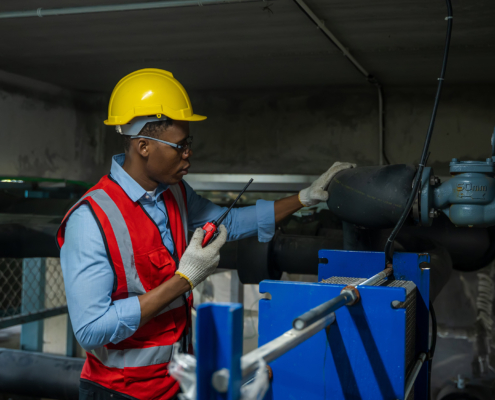 https://sammechanical.com/wp-content/uploads/2022/11/Person-with-Walkie-Talkie-Inspecting-Basement-HVAC-System.jpg
1250
2000
AbstraktMarketing
/wp-content/uploads/2024/01/sam-logo-crete-300x154.png
AbstraktMarketing2024-08-15 11:49:552025-01-07 15:57:32The Importance of Regular HVAC Inspections
https://sammechanical.com/wp-content/uploads/2022/11/Person-with-Walkie-Talkie-Inspecting-Basement-HVAC-System.jpg
1250
2000
AbstraktMarketing
/wp-content/uploads/2024/01/sam-logo-crete-300x154.png
AbstraktMarketing2024-08-15 11:49:552025-01-07 15:57:32The Importance of Regular HVAC Inspections https://sammechanical.com/wp-content/uploads/2024/08/Seasonal-HVAC-Maintenance-Tips.jpg
1250
2000
AbstraktMarketing
/wp-content/uploads/2024/01/sam-logo-crete-300x154.png
AbstraktMarketing2024-08-15 11:43:522025-01-07 15:57:33Preparing For Changing Weather: Seasonal HVAC Maintenance Tips
https://sammechanical.com/wp-content/uploads/2024/08/Seasonal-HVAC-Maintenance-Tips.jpg
1250
2000
AbstraktMarketing
/wp-content/uploads/2024/01/sam-logo-crete-300x154.png
AbstraktMarketing2024-08-15 11:43:522025-01-07 15:57:33Preparing For Changing Weather: Seasonal HVAC Maintenance Tips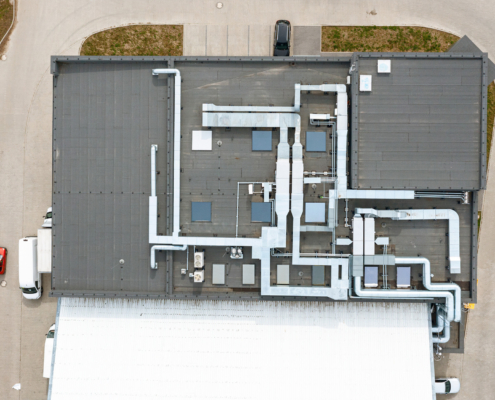 https://sammechanical.com/wp-content/uploads/2024/07/Understanding-the-Role-of-Commercial-Chillers-in-HVAC-Systems.jpg
1250
2000
AbstraktMarketing
/wp-content/uploads/2024/01/sam-logo-crete-300x154.png
AbstraktMarketing2024-07-15 16:25:562025-01-07 15:57:35Understanding the Role of Commercial Chillers in HVAC Systems
https://sammechanical.com/wp-content/uploads/2024/07/Understanding-the-Role-of-Commercial-Chillers-in-HVAC-Systems.jpg
1250
2000
AbstraktMarketing
/wp-content/uploads/2024/01/sam-logo-crete-300x154.png
AbstraktMarketing2024-07-15 16:25:562025-01-07 15:57:35Understanding the Role of Commercial Chillers in HVAC SystemsAbout
For over three decades SAM Mechanical has provided New Hampshire with the highest quality HVAC, plumbing, and mechanical services.


